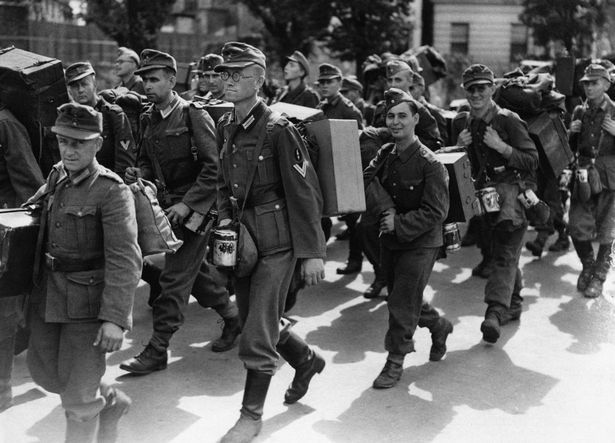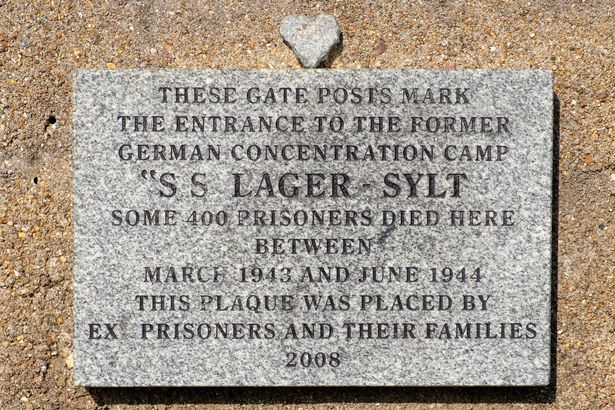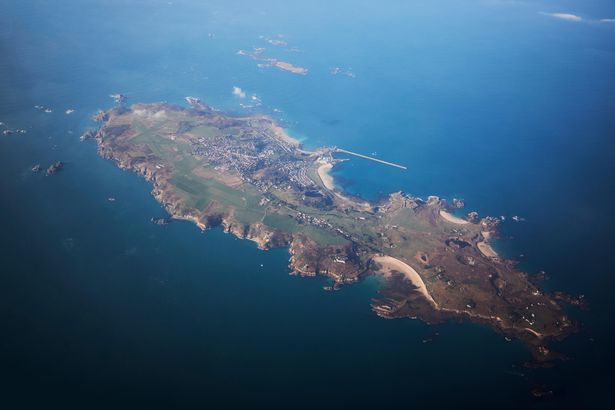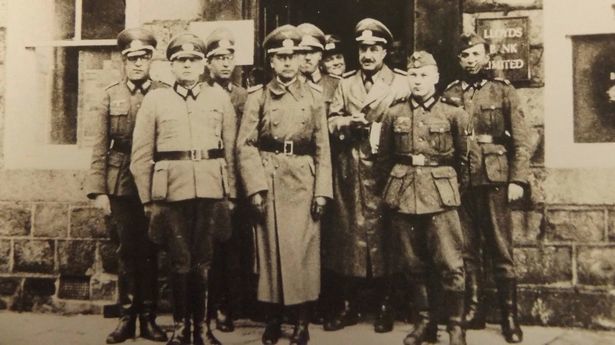
Secrets of Nazi concentration camps in Britain revealed for the first time
Official documents revealing the horrors of the only Nazi concentration camps to have existed on British soil can be seen in public for the first time.
Thousands of French Jews, Russian prisoners of war and German political prisoners were interned on the tiny Channel island of Alderney between 1942 and 1945.
The secret Pantcheff report, compiled 75 years ago, is supposed to be locked up in British archives until 2045 but a copy was given to Russia from where it has now emerged.
It reveals that Britain investigated the atrocities after the war - but later refused to bring any prosecutions fearing an international embarrassment.
The post-war Government also appears to have failed to help other countries seeking to do so.
 German soldiers arriving in Southampton from the Channel Island of Alderney in 1945
German soldiers arriving in Southampton from the Channel Island of Alderney in 1945
Lord Pickles, the UK’s special envoy for post-Holocaust issues, said that people deserved to know why Britain failed to prosecute a single Nazi for war crimes committed there.
The Tory former cabinet minister said: “What happened does not reflect well on the British government at the time, and we are eager to ensure the full facts are understood by the nation.
“That is why I am saying we must release all documents related to the Holocaust that are currently classified by next January.”
The grim details of the dossier detailing systematic violence and murder on the island were first revealed by ITV earlier this month, with more details released by the Sunday Times.
 Thousands of French Jews, Russian prisoners of war and German political prisoners were interned on Alderney
Thousands of French Jews, Russian prisoners of war and German political prisoners were interned on Alderney
The classified report written by British intelligence officer Major Theodore Pantcheff, then 24, shows what he found after a series of interviews on Alderney at the end of the war.
The young officer, fluent in French and German, spoke with more than 3,000 witnesses, including former prisoners of war, German soldiers and civilians.
They described Jews and Russians being beaten or murdered for pleasure, prisoners eating rotting food, rubbish and snails, and, in one case, the suggestion of cannibalism.
Pantcheff also included an account of the torture of a Russian teenager who was made to sit on a hot stove for 30 minutes.
 The Channel Islands were occupied on June 15, 1940
The Channel Islands were occupied on June 15, 1940
He concluded: “It has been established, I think, that crimes of a systematically brutal and callous nature were committed - on British soil - in the last three years.”
The Channel Islands were occupied on June 15, 1940, after Winston Churchill decided they were of little strategic importance and could be left undefended.
The Nazis had defeated the Allies in France just days before, forcing the French to surrender and the British off the continent.
 Nazis outside a bank in Alderney
Nazis outside a bank in Alderney
Churchill avoided mentioning the islands in his broadcasts, believing the thought of Nazis walking past red postboxes and English roadsigns could damage morale.
Four months later, Hitler announced his plan to create an “impregnable fortress” on the islands at the heart of his Atlantic Wall to prevent an allied invasion of Europe.
Alderney, whose residents had already been relocated, was to become one of the most heavily fortified sections and Nazi military engineers arrived shortly after.
 Former Tory minister Lord Pickles
Former Tory minister Lord Pickles
They oversaw the construction of four labour camps, starting in 1941, as well as other satellite prisons for slave labourers.
In 1943, the SS arrived, turning two of them into concentration camps.
It is thought that more than 6,000 people of 27 nationalities were taken to the island.
Many arrived in cramped conditions on boats with less than one square metre deck space per man and no sanitary facilities on board.
Some died during transit to or from the island, or while docked in the harbour for days waiting to get out.
Josef Kaiser, a German naval officer, recalled 14 dead bodies being removed after a ship waited in harbour for five days with one body “eaten by rats or Russians”.
Prisoners lived in wooden barracks, many damp, flooded and structurally unsound, encircled by barbed wire fences.
They spent most of their time outside doing at least 12 hours of heavy labour a day, with a short break at midday, for seven days a week.
They had no special equipment and wore the same clothes year-round, with the exception of wooden clogs.
The inmates lived on starvation diets, with “half a litre of coffee, without milk or sugar” for breakfast, “half a litre of thin cabbage soup” for lunch, and “a similar portion of soup and a 1 kilo loaf among 5-6 men” for dinner.
Unsurprisingly, many of the men were soon broken, scavenging for food among scraps left by dogs and dead animals buried under manure.
Ernest Vincent Clark, a British farmer who remained on the island, described a regular parade of sick prisoners brutally assaulted by camp guards, including being kicked in the kidneys.
Senior Nazi officials were also responsible for horrific crimes with Karl Theiss, a commander, requiring his office walls to be repainted four times to remove bloodstains.
Scharführer Hoeglow, the head of the SS troops, is listed as giving a 4 days’ leave, extra food and drink to SS guards for every five dead prisoners.
One Nazi medical orderly, Scharführer Krellmann, gave elderly and incapacitated prisoners lethal injections which killed them within five minutes.
On other occasions, individual prisoners said to have been thrown into the sea for not working hard enough.
Pantcheff concluded that at least 372 inmates were killed but the true figure is likely to be much higher, with contemporary historians estimating a death toll between 700 and 950.
A number of witnesses referred to burial pits with up to 10 bodies in each, and the graves left open until they were full.
The British officer’s report contained a long list of named Nazi officials, crimes they were accused of, and details of underlying evidence.
It also provided evidence of the camp’s leadership structure and its role within the wider Nazi war machine, reporting to Heinrich Himmler, the main architect of the Holocaust.
Yet Britain did not bring prosecutions and prevented others from doing by failing to disclose evidence.
As a result, only a handful of Germans were ever punished for their crimes on Alderney, mostly by a French military tribunal.










